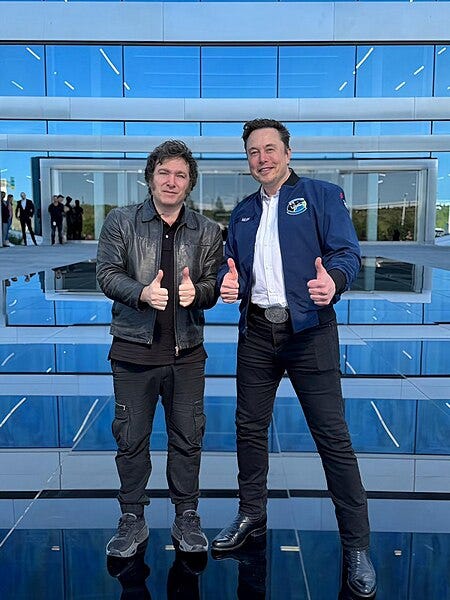Elon Musk's Far-Right Global Counterrevolution
The tech mogul's endorsement of the German far-right is part of a global trend

A warm welcome to all new subscribers. I love writing this newsletter but it does take a lot of work. If yo…

A warm welcome to all new subscribers. I love writing this newsletter but it does take a lot of work. If yo…